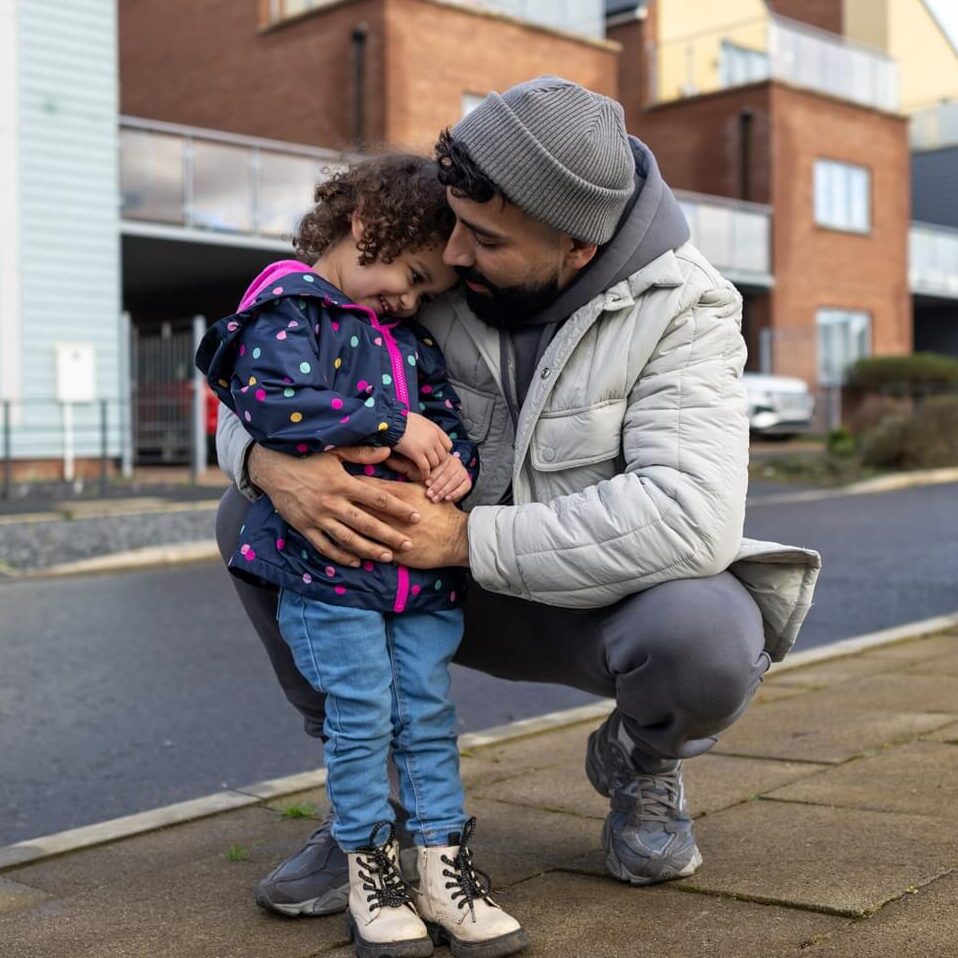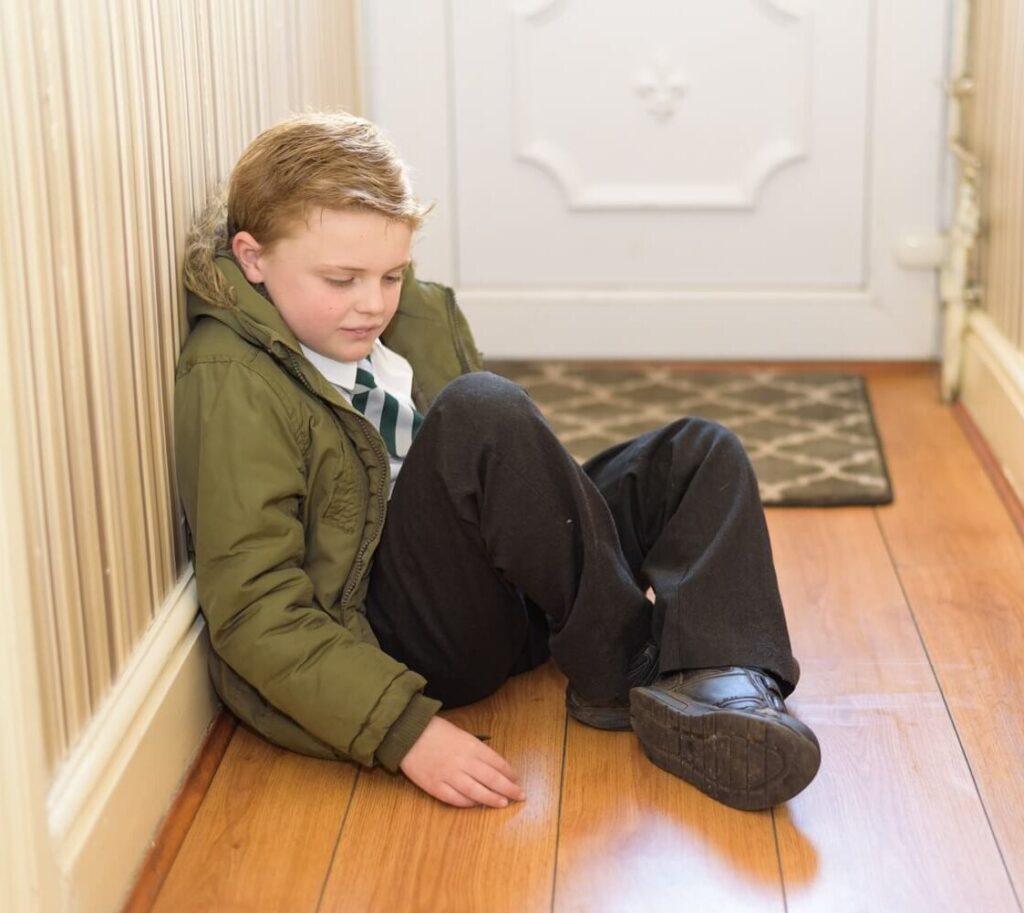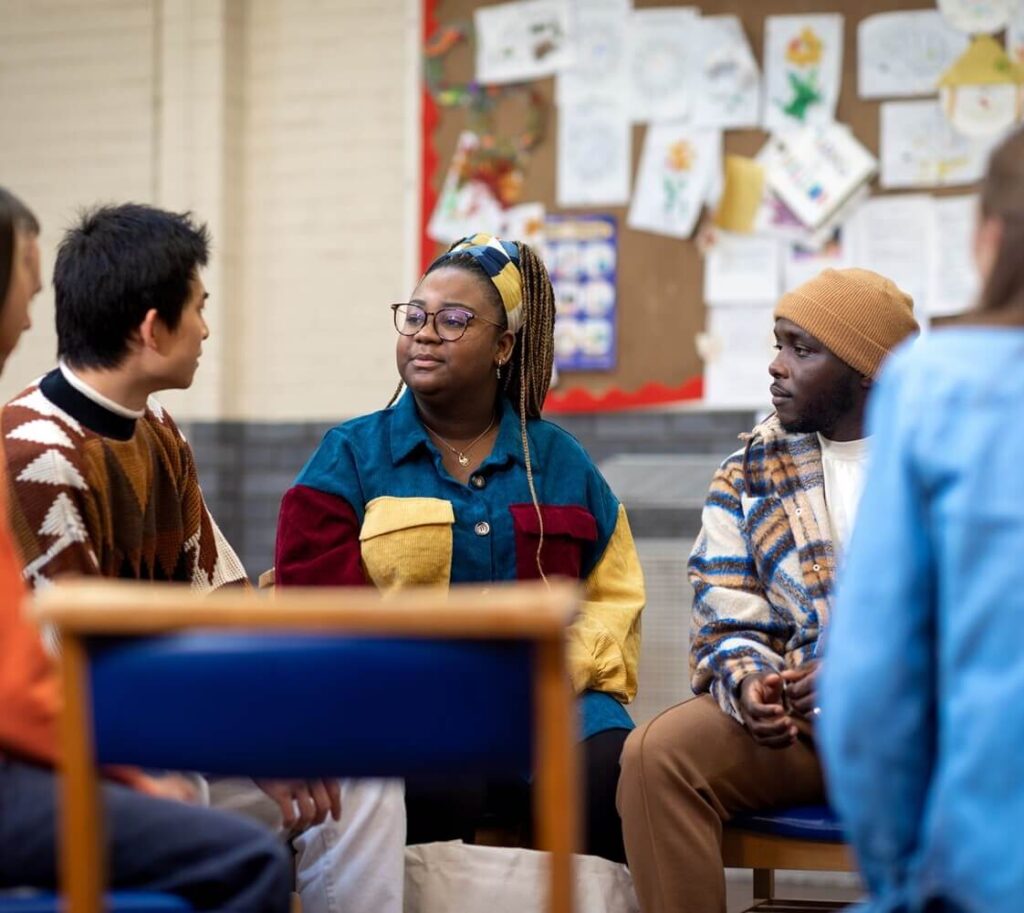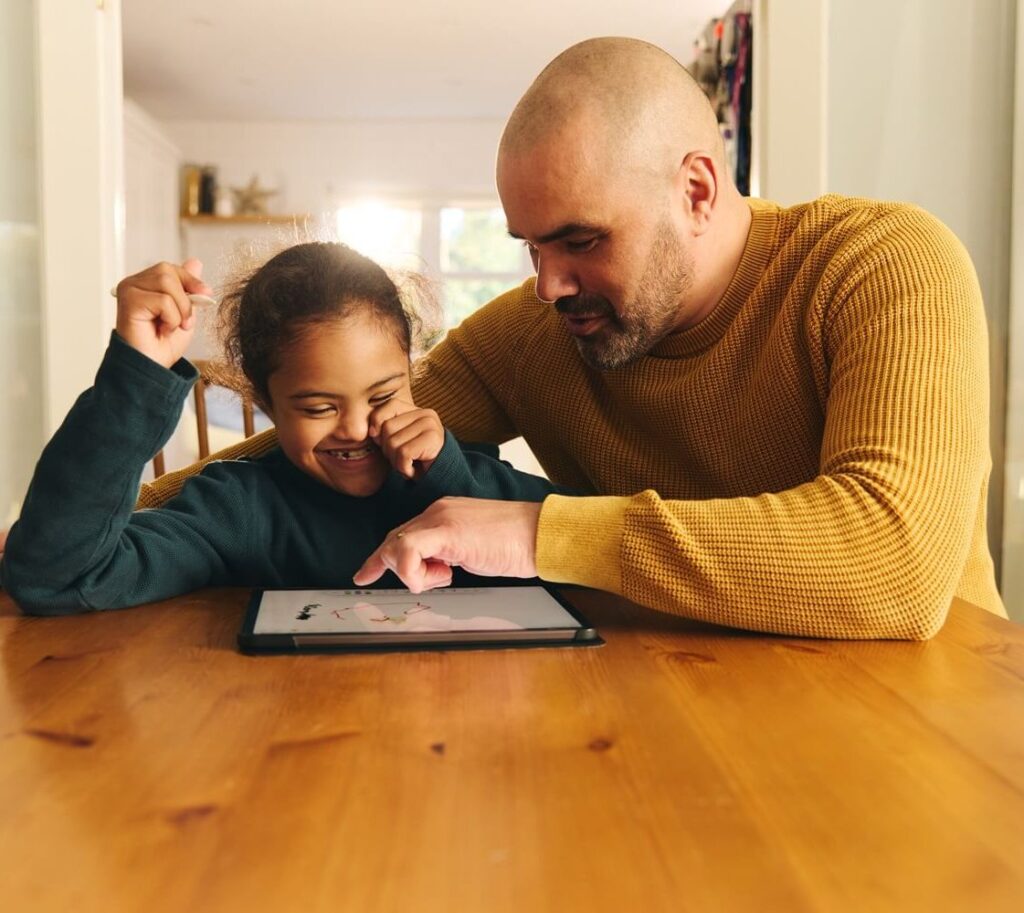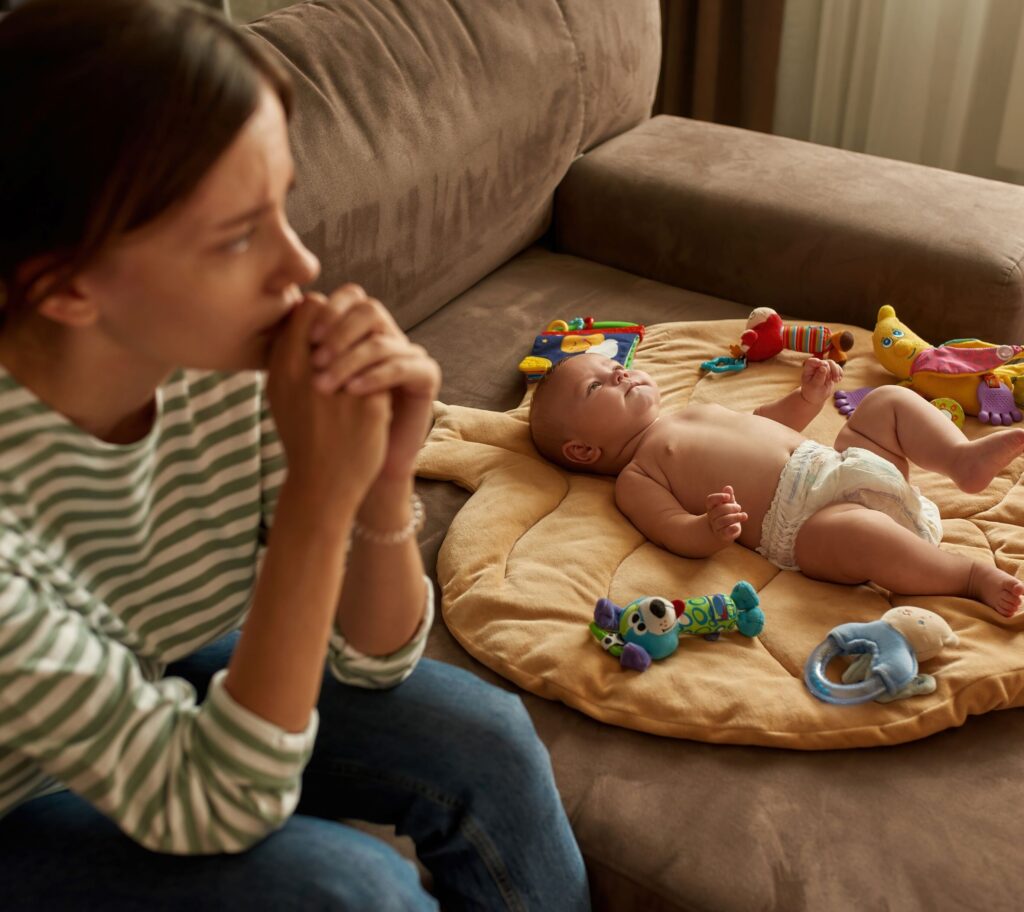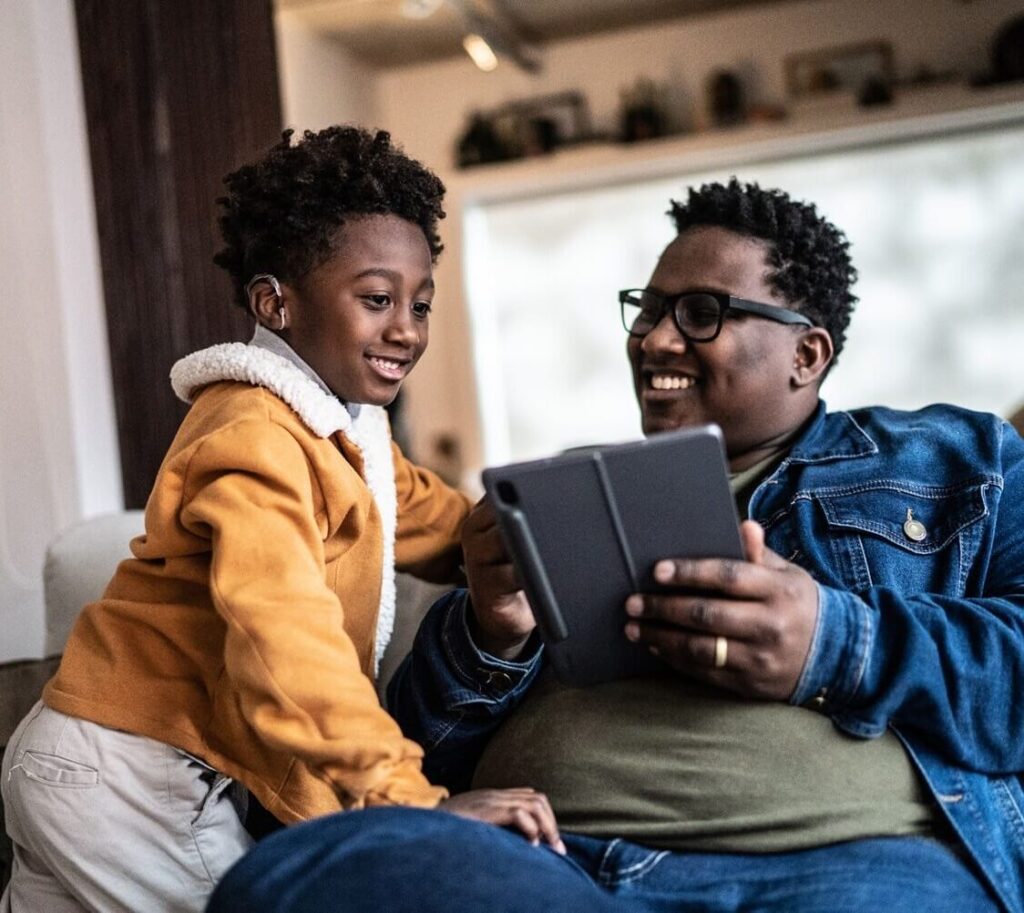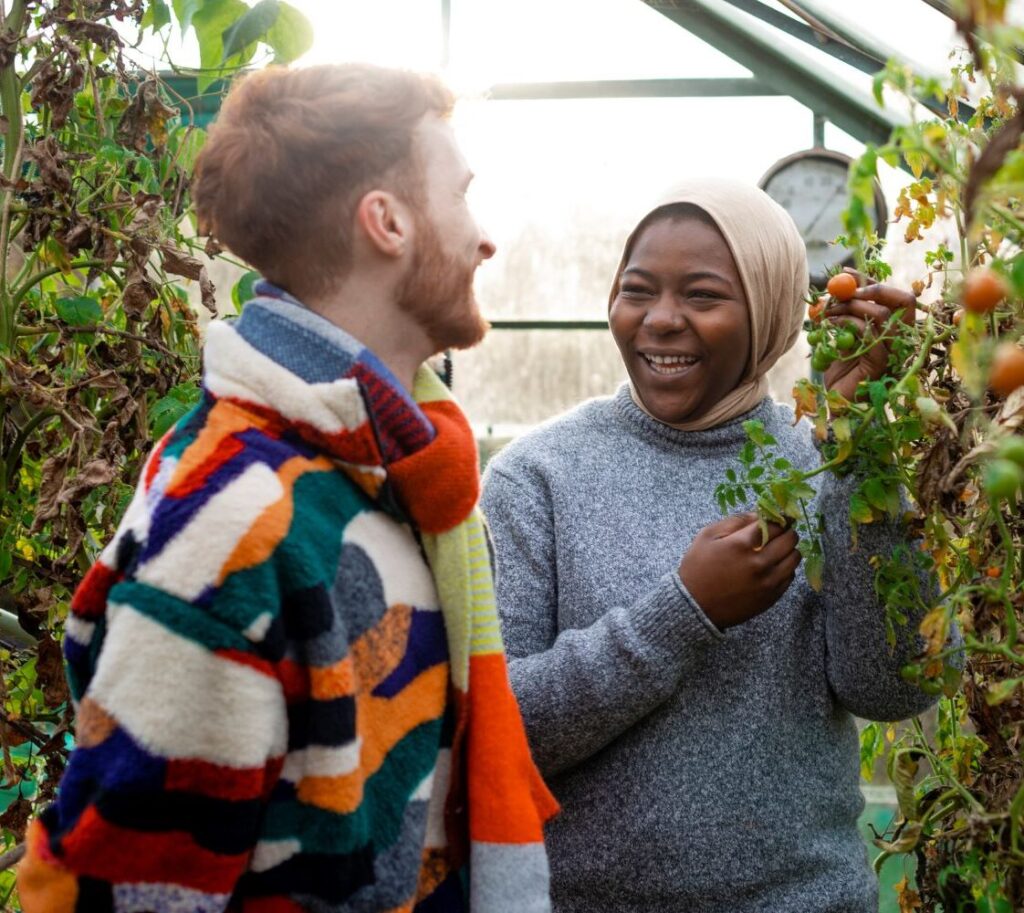It can be tricky to know where to start when it comes to talking to children and young people about parental mental health. We’ve spoken to Jen Booth from South Tees Perinatal Support and Sophie Large from Friendship Works Mentoring to get their tips and guidance.
Whether you want to talk about parental mental health with your child because you’re struggling, you have a diagnosis or because you want to start encouraging open and honest conversations on this topic from an early age, we’ll cover:
- How to normalise talking about mental health as a family
- When to start these conversations with your child or young person
- How to start the conversation, including how to balance being informative with being overwhelming
- Modelling self-care activities and doing them with your child
- What you can do if your child worries about your mental health
We’re giving some general guidance in this article for how to approach these conversations about mental health, but it’s going to look very different depending on the situation and child in question. Conversations will go differently for everyone. Some children will have more questions than others and some will need more thinking and processing time.
Either way, it’s a hugely positive thing that you want to have this conversation and be open and honest with your child, and they’ll appreciate you sharing how you’re feeling with them. Often, the unknown is what’s scariest, and sharing even just a little of how you feel will be reassuring to them.
Normalise talking about mental health as a family
If you’re reading an article like this, there’s a chance you’re concerned about saying the wrong thing to your child about parental mental health, or potentially worrying them further rather than helping them to understand.
It’s important to remember that having conversations about mental health within your family helps to normalise it as a topic. Mental health encompasses many different things and it’s different for everyone. However, it’s also very common for people to have their mental health challenges, whether it’s temporary or more prolonged or recurring.
A big thing I always emphasise when talking to families about mental health is just how common mental health problems are. Many families will at some point in time be impacted by mental health.
This can actually be reassuring for both parents and children. If you as a parent can remember it’s not just you who struggles with your mental health, and that other parents at your child’s school and other adults around you also have their own mental health challenges, it can help your whole family feel less singled out or different.
Having conversations about mental health can start early, and our colleagues recommend starting early and in an age appropriate way to help make it easier to talk about. This is particularly true when your child becomes an adolescent and may well have more of their own concerns. Having open and honest conversations about parental mental health can also potentially encourage your child to be open about their own mental health, which can only be a positive thing.
When to start the conversation about parental mental health
When you’ve made the decision to speak to your child about your mental health, when is the best time to bring it up? Should you be proactive and raise the topic before your child starts asking questions or do you wait for them to be curious and go from there?
Something the colleagues we spoke to were very clear on is that children often know – or at least suspect – something is going on, even if they don’t know exactly what. So even if you think your child is unaware that you have a mental illness, there’s a good chance they might have picked up on something or overheard conversations. And at that point, they’re likely to come to their own conclusions about what is happening.
This happened with one young person whose parent had a severe mental illness that meant they had to go into hospital. Rather than asking about what was going on, the young person ended up believing their parent had terminal cancer. So it’s generally best to bring these conversations up with your child earlier rather than later, to stop them filling in the gaps themselves from what they’ve observed and getting the wrong answer.
One other thing to bear in mind is that it’s usually easier to be up front and honest when you’re in a place of good mental health.
Have those conversations when you're feeling well. Then when you are unwell – or more visibly unwell – it'll be less scary for your child and your family will feel more prepared.
How to start the conversation
Your child or young person’s age can have a big impact on how you approach this conversation, but it’s best to try to be as open and factual as you reasonably can. When you start the conversation, keep it simple, and let your child’s response lead the conversation. You might say that sometimes you don’t feel well, or that sometimes you feel extra tired. You could ask, “Have you ever noticed that sometimes I get very sad?” Based on your child’s response to that first question, you can take the conversation from there. Your child will probably have their own questions, so it’s important to leave space for these.
You can also take the same approach as you would with a physical illness. For example, instead of having a poorly leg, Mummy or Daddy sometimes has a poorly brain. And, for example, when that happens we can feel extra sad and we take this medicine to help us feel better.
If you’re really unsure where to start, you might look for a book that you can read together. Then when you’ve read the book, it can open up a conversation about your mental health and how you feel. We’ve included a list of books in the resources section at the end of the article.
The balance between being informative and overwhelming
Giving your child enough information to feel like they understand but aren’t overwhelmed very much depends on each individual. You might prefer not to tell your child your full diagnosis, if you have one. But if you do, this might be something you decide to only tell your child when they’re older. For example, the words bipolar disorder mean very little to a child – what matters most to their understanding is how it makes you feel or behave.
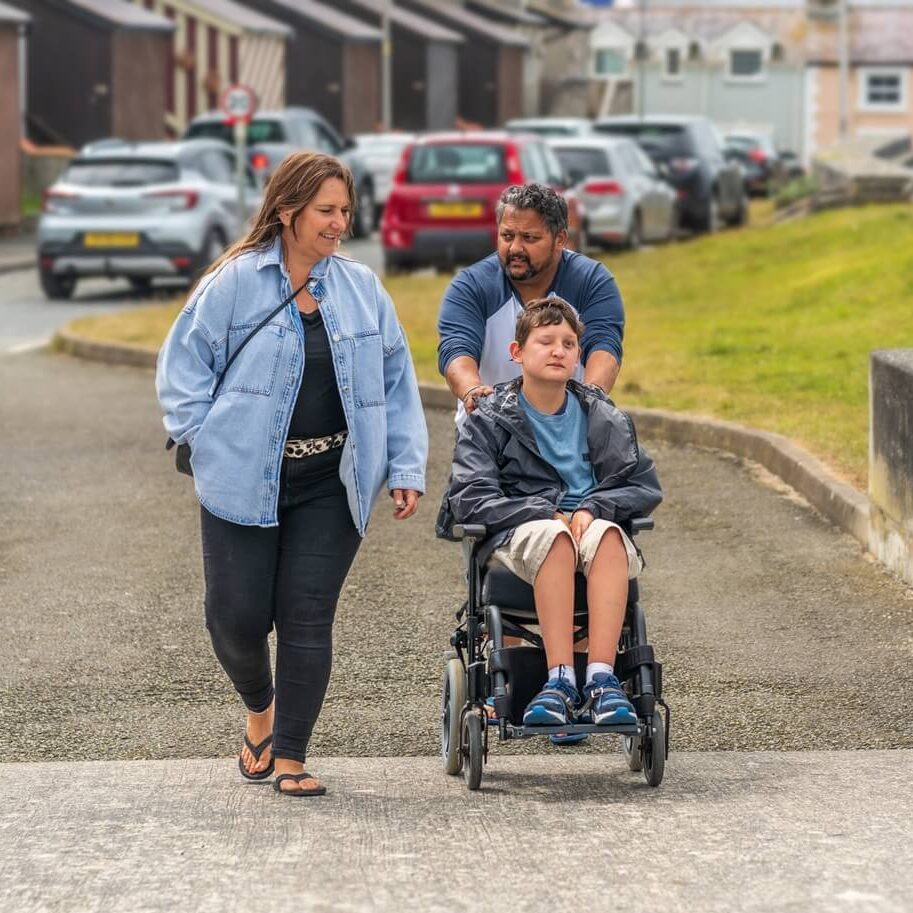
With adolescents, it can be more difficult to decide how much detail to go into. Teenagers often understand more than younger children, but what you tell them will likely depend on your relationship, as well as the external influences in their life.
Also, bear in mind this isn’t the only conversation you’ll have on this topic, so you don’t necessarily have to get everything you want to say out in one go. Your child or young person may well come back to you with questions at a later date when they’ve thought about it and processed what you’ve told them. Or you may suggest to them that they think about it and you could talk about it again tomorrow to see if there’s anything else they want to ask.
It’s often helpful to tell your child what you do to look after yourself and what helps you to feel better, whether that’s taking medicine, having a conversation with a doctor or going for a run. Explaining this – especially those self-care activities that a child might not link with feeling well mentally – can help your child see what you do to take care of yourself.
Modelling self-care activities and doing them with your child
Modelling the self-care activities you do, and including your child or young person in those activities is another nice way to help them understand what you do to support your mental health.
If you’re looking for a self-care activity you can do with a child of pretty much any age, you could go for a walk in a park or around your local area and talk about what you’re experiencing through your senses. What can you both see, hear, and smell? How does the bark of a nearby tree feel?
Not only is this a lovely mindfulness technique but it’s a conversation starter too. And it’s something you can do anywhere, like during a car journey or on the school run. It’s particularly useful in a situation that might feel overwhelming or stressful, as it can have a calming effect. Talk this through with your child and explain how you feel before and after doing this exercise to help them understand. And when they start doing it themselves, they’ll also start to understand that the exercise helps them feel more calm or relaxed.
Doing self-care activities together is a lovely way to help your child understand what helps you to feel more calm, while at the same time giving them the tools to support their own mental health and helping them to be more resilient.
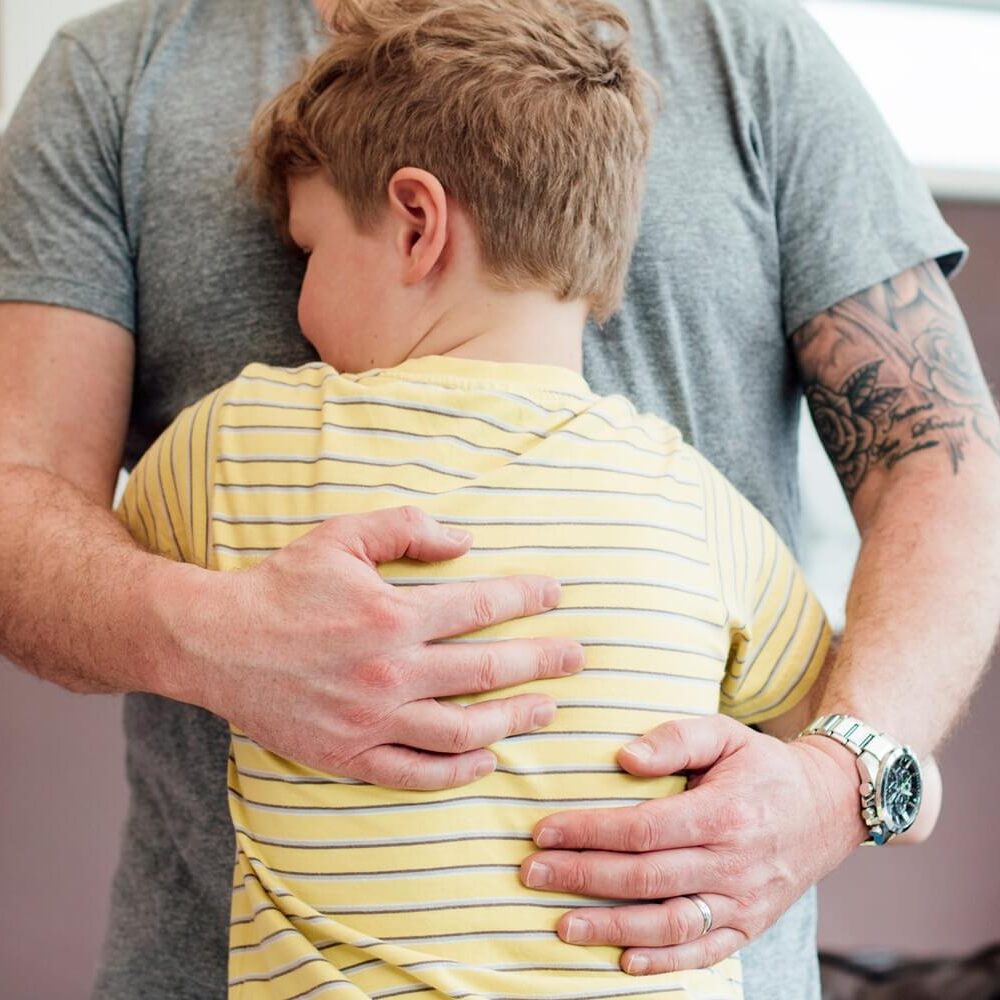
If your child worries about your mental health
Many children will find the information you share about your mental health reassuring. But if you’re concerned that what you’re telling your child is making them worry more, there are some things you can do to ease this.
A good place to start is by checking in with them to find out exactly how they’re feeling. Ask an open question like “How do you feel about that?” to give your child a chance to explain how they feel.
If they’re worried about what you’ve told them about your mental health, here are some suggestions that can help:
- Worry monster: You could make a worry monster with your child, by turning a tissue box or similar sized container into a friendly looking monster with paint, coloured paper and stickers. Let your child lead on decorating as much as possible. Then if they have a concern or question, they can write it down and “feed” it to the worry monster. The worry monster holds the worry so the child doesn’t have to, and then you can go through it together. They could even draw a picture if they’ve got lots of images in their head – and some neurodivergent children might prefer to draw or doodle over writing anyway.
- Journaling: Older children and young people might prefer journaling. Let them pick out a notebook or journal that they’d like to use, then they can leave it by their bed. If they wake in the night with a worry in their head, they can write it down in the journal and get it out of their head. Or alternatively they could draw in it, or use stickers, or anything else that helps them express themself. You might then decide together to chat about the things your child or young person has written in the journal, or they may choose to keep it private. Either way, the journal becomes an outlet for them and a way to get things out of their head and onto paper.
- Talking to another trusted adult: Sometimes children find it easier to open up to another trusted adult, particularly if they’re worried that they might add to your concerns. If you have a trusted adult in mind, you might ask them to check in with your child and young person and see how they are, in case they want to chat.
- Young carer services: Children and young people can be young carers for someone with a mental illness because they can feel that they’re keeping an eye on that person and monitoring their feelings. Talking and connecting with others at a young carer service can help your child work through their worries. See what Family Action services are in your area using our service finder.
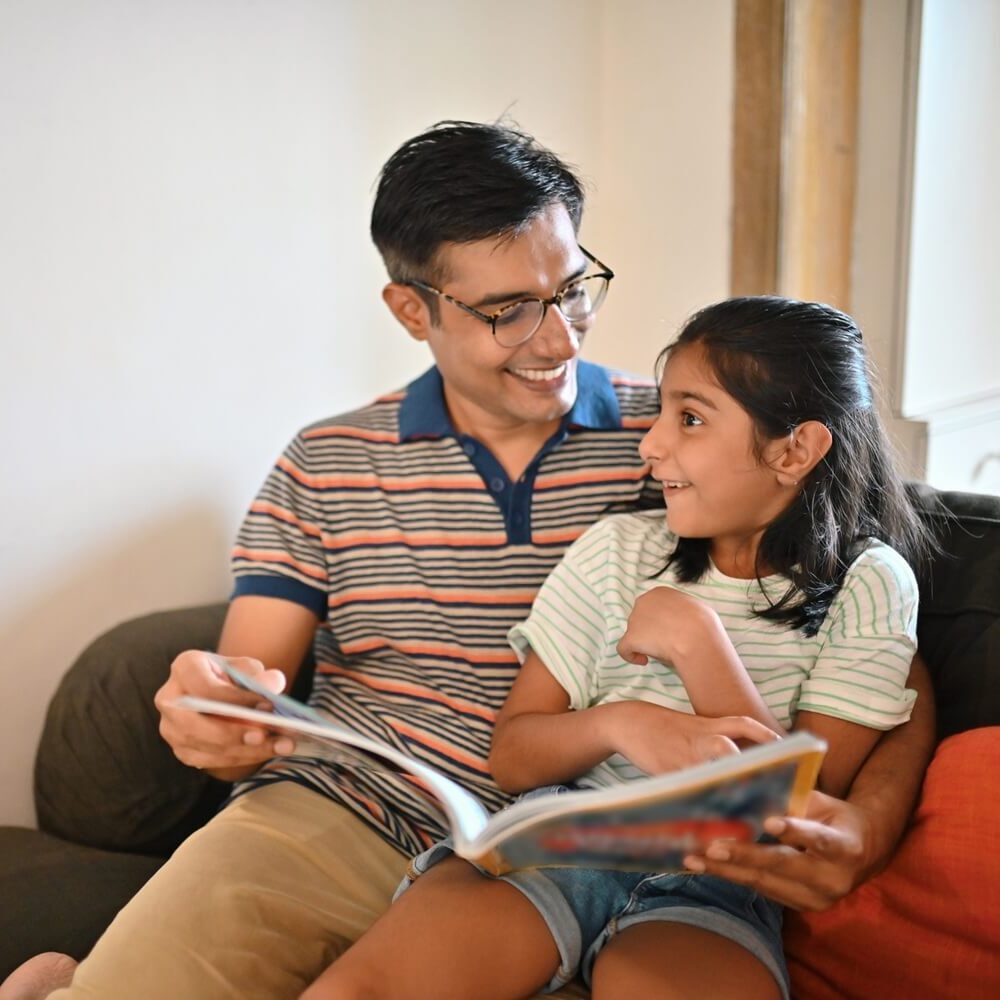
Finally, you might create a plan that outlines what you as the parent are responsible for when it comes to your mental health. So for example, you might cover:
- what you do if you start to feel unwell, whether that’s taking your medication or doing some self-care activities
- who else your child can talk to if needed, like a safe adult in their life
- what your child can do if they’re really worried, like calling an ambulance.
This shows your child what you do to look after yourself, and that the onus is on you as the parent and not them as the child. But it also empowers your child by giving them the information they need if they’re ever worried about you.
More information
For more information or support, find a Family Action service in your area or contact our helpline, FamilyLine, by text, email, webchat or phone.
For more resources that can support your conversations with your child or young person, see:
- List of books and workbooks
- Free examples of conversation starters from BBC Children in Need and Young Minds.
- Ask It Tell It cards: This is a pack of cards you can buy. The cards contain a variety of statements and questions, and are a good way to start conversations if you don’t know how to begin.
- Conversation cubes: Another resource you can buy. They’re shaped like dice but are bigger. These are useful for starting conversations with people of any age – children, teenagers and adults too.
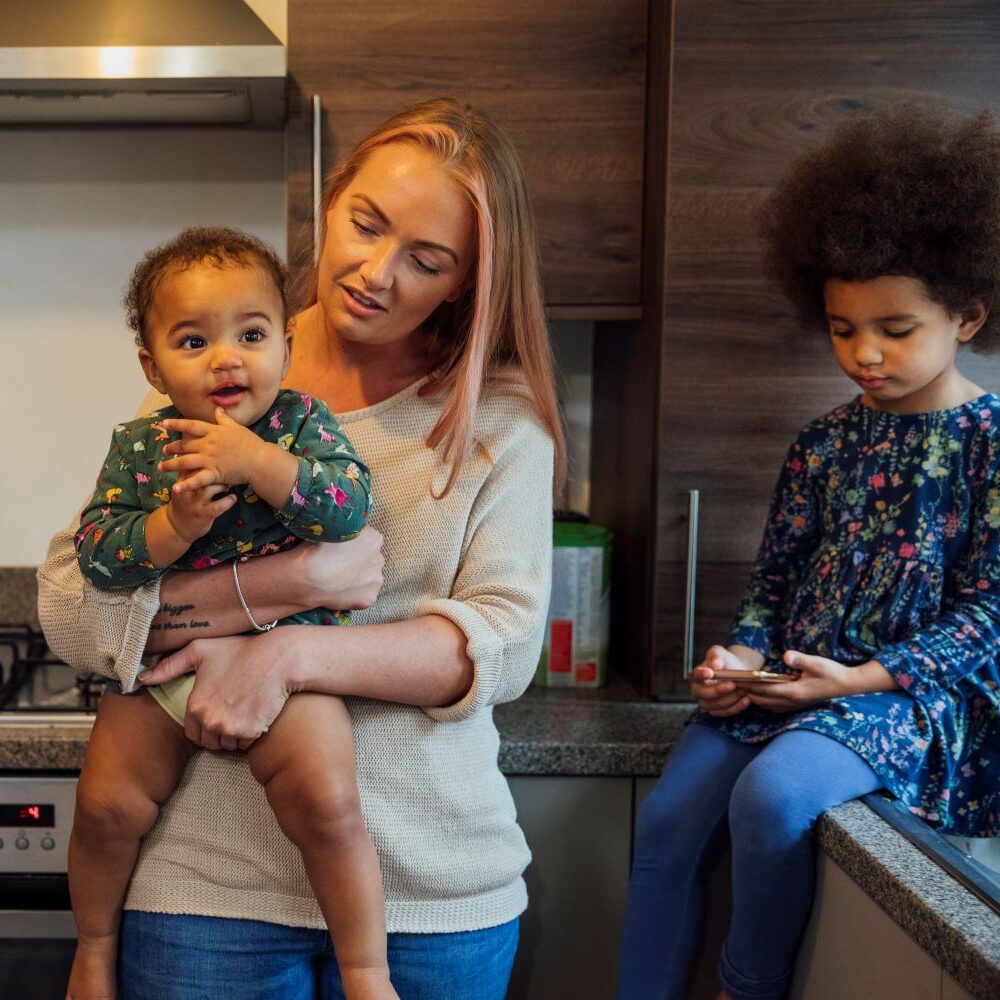
Call, text, email or web chat FamilyLine
If you’re feeling overwhelmed, worried or upset about any aspect of your family life, FamilyLine is here for you. We offer free emotional support and guidance on family relationships, conflict, parenting, caring, financial worries and more.
Contact FamilyLine